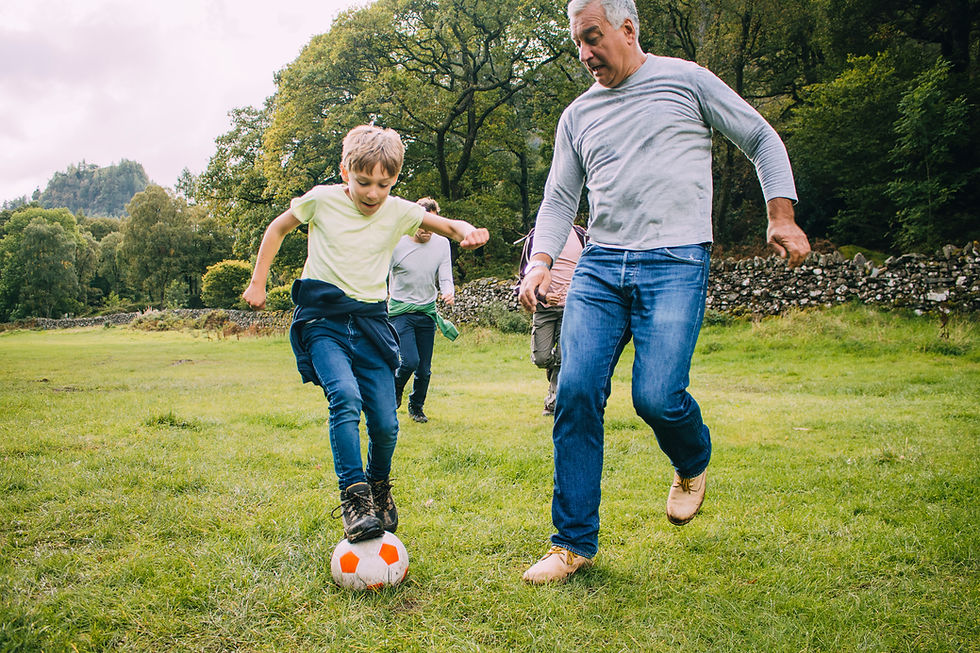Nature as a Teacher: Why Outdoor Play Matters
- Aug 28, 2025
- 2 min read
Children learn and grow in every environment, but the outdoors offers something truly special. Whether it’s the backyard, a neighborhood park, or open spaces in the community, spending time outside provides rich opportunities for physical activity, imagination, and connection. Research shows that children who spend more time in nature are healthier, more focused, and often better equipped to manage stress. Outdoor play isn’t just a break from routine—it’s a vital part of development.

Everyday Nature, Everywhere
Outdoor Play doesn’t require a long trip or a wilderness adventure. Children benefit from simply feeling the breeze, hearing birds, or exploring a playground. For infants and toddlers, even short outings provide sensory experiences that build early brain connections—tummy time on a blanket, reaching for bubbles in the air, or listening to a parent describe the world around them. For preschoolers and school-age children, natural settings spark creativity and exploration. Sticks, leaves, and rocks can become art projects or props for pretend play. Tasks like watering plants or raking leaves also help children feel like valued helpers while building motor skills.

Outdoor Play Across Ages
Older children and teens also need opportunities to connect with the outdoors. Activities like biking, nature scavenger hunts, building bird feeders, or simply walking and talking with an adult offer new ways to strengthen family bonds while staying active. Outdoor playdates or community gatherings encourage friendships and make nature a social space as well. Importantly, being outdoors can also create space for meaningful conversations, especially for older kids who may find it easier to share their feelings during a walk rather than sitting face-to-face.

The Benefits Go Beyond Play
The impact of time outside is clear. Physically, children play harder outdoors, which improves strength, coordination, and overall health. Safe exposure to sunlight provides vitamin D, supporting strong bones and immune systems. Mentally, outdoor play lowers stress and helps reduce symptoms of anxiety, depression, and ADHD. Behaviorally, it can improve focus, impulse control, and reduce aggression. And emotionally, outdoor experiences build resilience, curiosity, and joy.

A Call to Action
Outdoor play benefits every child, but not every community has safe or accessible outdoor spaces. That’s why it’s important for families, providers, and community leaders to advocate for parks, green spaces, and safe play areas where children can explore freely. Whether it’s a picnic, a ball game, or simply lying in the grass to watch the clouds, every outdoor moment contributes to a child’s growth and well-being.
The takeaway: Outdoor play is more than fun—it’s essential. By encouraging children to spend time outside and making nature a part of daily life, we support healthier, happier, and more resilient kids who will carry those benefits into the future.



